The college campus has approximately 46 different species of trees. The number of different species is different and they vary from 1 to 35. China palm has been observed with a maximum number of trees (35) followed by Ashoka tree (30). Total 312 trees were counted in the campus of the institution.
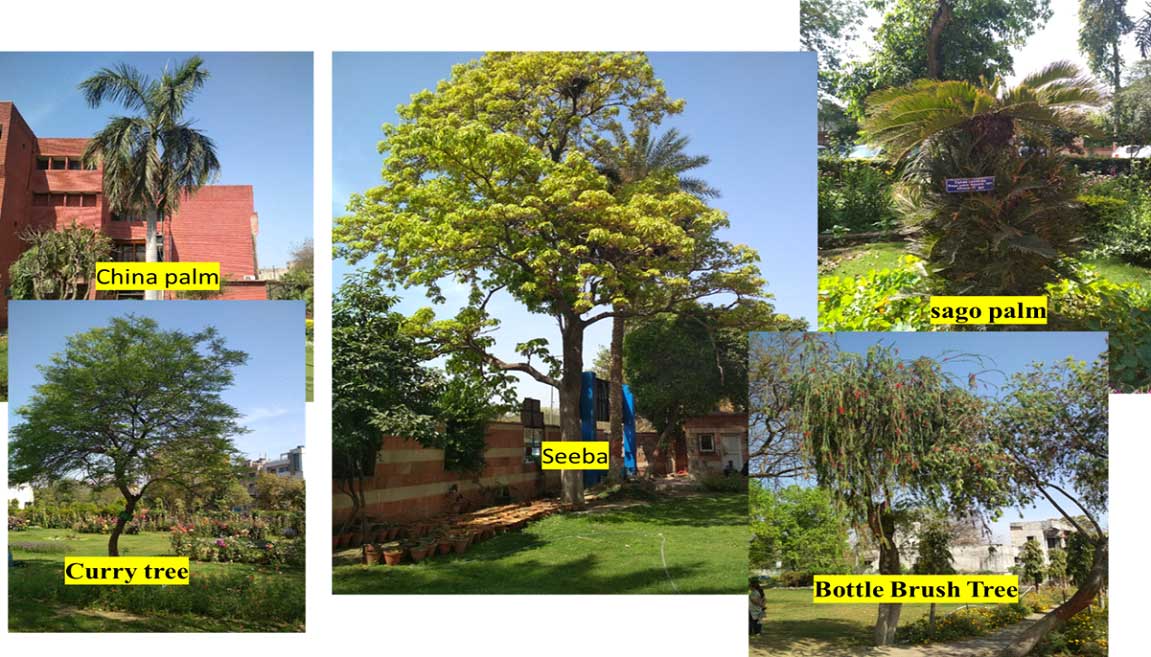
The central area of the new building of college has a rainwater harvesting system for better groundwater recharge. The stored water in this tank can be used for gardening purposes and supply to the running track.
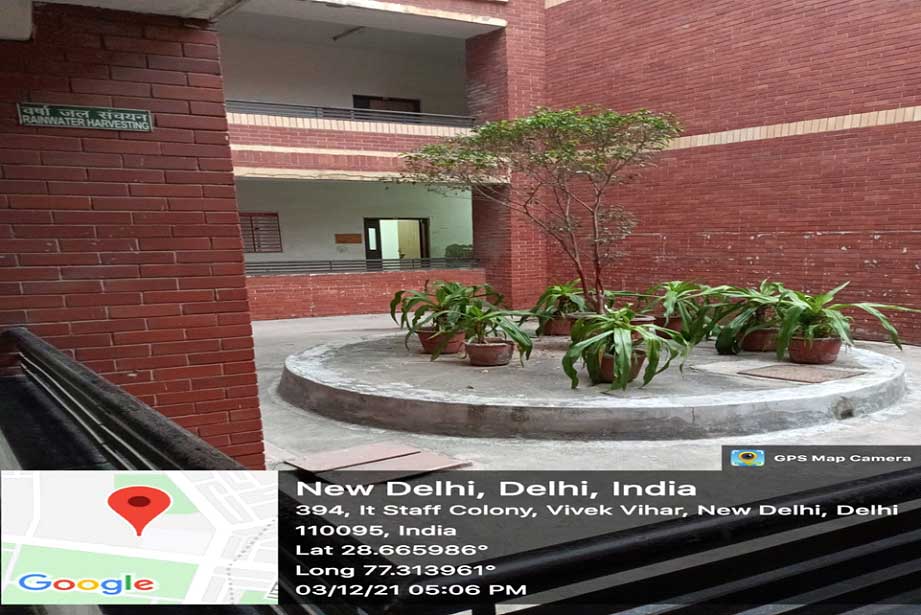
PM2.5 aerosols concentrations were measured with the help of the CSIR-National Physical Laboratory at a site in Vivekananda College, Delhi. PM2.5 sampler (PM2.5, model Envirotech, APM 550) is based on impactor design and is standardized by USEPA for ambient air monitoring.
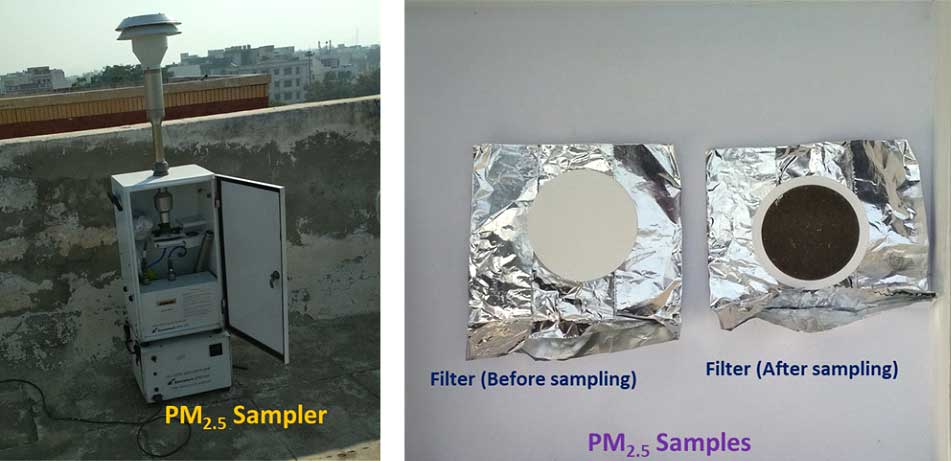
The college has organized numerous cleanliness campaigns over the last few years. These drives encourage students to separate recyclable and non-recyclable wastes. New dustbins are often installed as part of such drives. Green and blue dustbins are available on every floor of the college building, canteen, and garden.
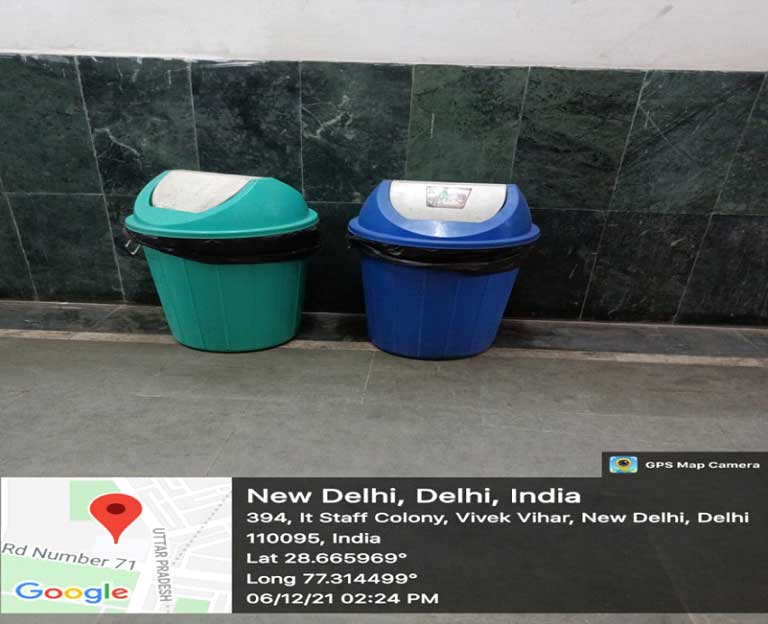
The institution has two functional compost pits for organic solid waste management. The organic waste of the college garden such as dry leave, grass, small branches of trees etc. is segregated and used in the pit compost for the generation of nutrient-rich compost. Usually, it takes a few months to convert waste to compost under normal environmental conditions. In addition, the institution also has a compost machine for fast composting of kitchen and garden waste.
The institution has a separate room to provide medical benefits for students and also has a separate dustbin for medical waste. Moreover, the college has also installed a sanitary napkin disposal machine which reduces the waste in an efficient manner without polluting nearby areas.
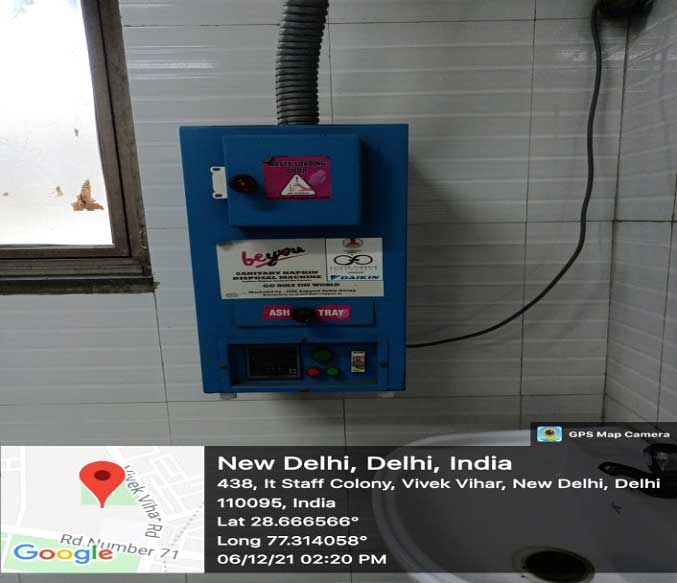
The College has a separate storeroom for the safe storage of electronic waste. After a certain interval of time college disposes of the E-waste to concerned agencies through the auction process.
Organic waste of college canteen is usually used for the production of compost with the help of compost machine which is installed near the Vivekananda Auditorium.
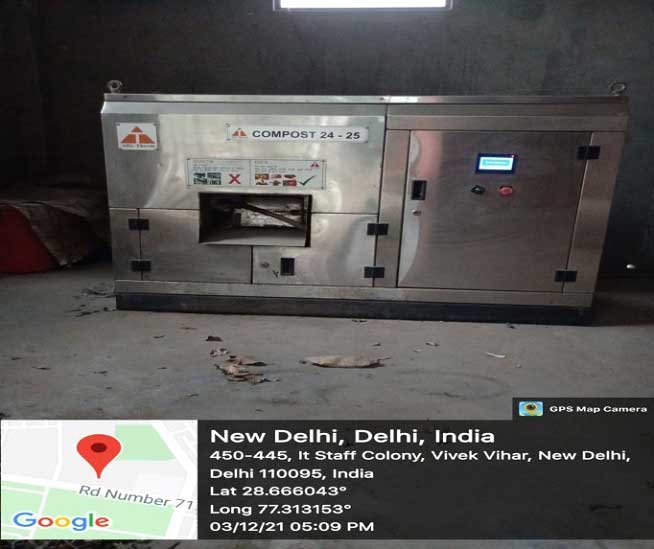
The institute has five laboratories that do not work on hazardous or radioactive elements. Therefore, no radioactive waste management is needed.
Most of the college rooms are well ventilated which facilitates energy exchange and provide a cooling effect during the summer months. Moreover, the glass window of the classroom facilitates heating during the winter months. Good availability of natural light and cross-ventilation in the classrooms of the college is able to minimize the use of electric lighting, air-conditioning etc. Many awareness activities related to energy conservation has been organized among the college students.
The college has also installed approximately 162 solar panels on the rooftop of new and old buildings. The details of monthly production of solar electricity, import/ export to BSES and consumption of electricity from July 2020 to June 2021 has been shown in Table.
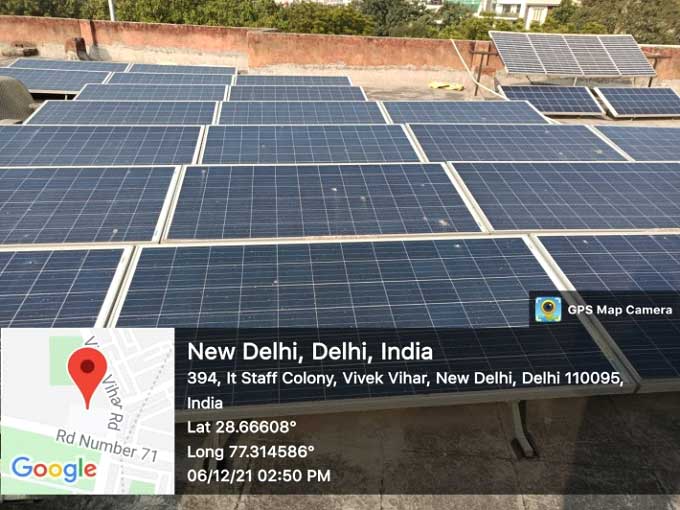
In addition, College administration is increasingly shifting to the use of LED lights. Shifting to LED is another very important step to reduce the load on conventional energy resources. The institute has installed a total of 40 LED lights (250 watts each) inside the campus. Geotagged image of one LED light pole has been shown below. Total 5 LED poles installed in the month of July 2020, and each pole carries 8 LED lights.
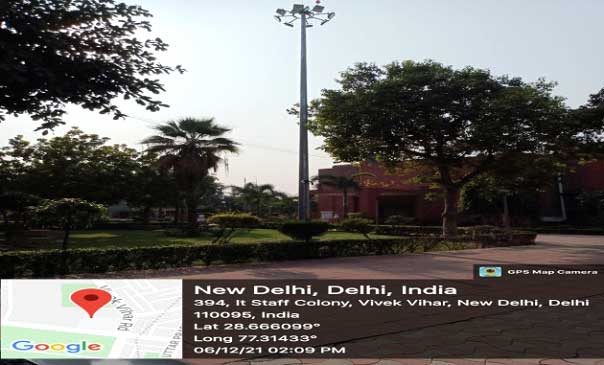
The initiative was taken by the college and teachers to make students aware of electricity conservation. The institution has also posted several banners/ posters inside the campus to make students aware and reduce electricity demand.
The College staffs are engaged in making college campuses clean and healthy. To improve soil quality, the College has operational pit compost and vermicomposting. The burning of garden waste is strictly prohibited on the Campus. All garden waste is used for making compost in compost pits. In order to ensure safe drinking water, the College has installed RO plants in the campus.
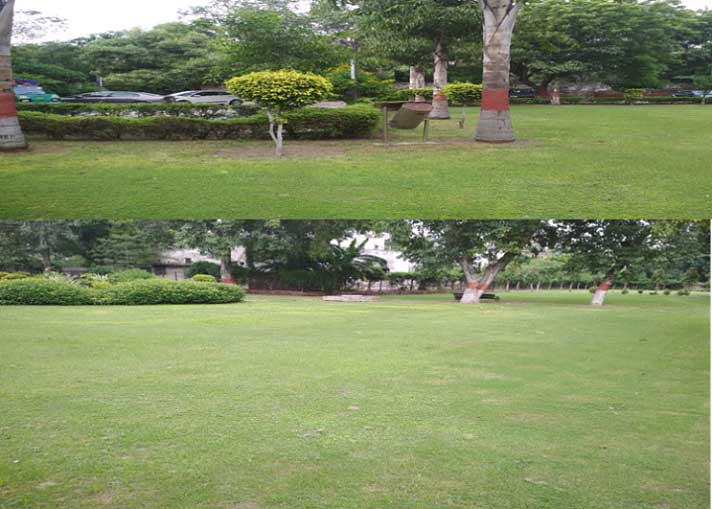
A greenhouse has been established in the college premises to maintain greenery in the campus. For the replication of plants, the greenhouse plays an important role as saplings are grown in a greenhouse under suitable environmental conditions. It protects saplings from extreme weather conditions. The greenhouse is also used in developing compost and other garden-related activities.

The central area of the old building of college has a green pavement block for better water groundwater recharge. This serves both as an eco-friendly measure and as aesthetically appealing.
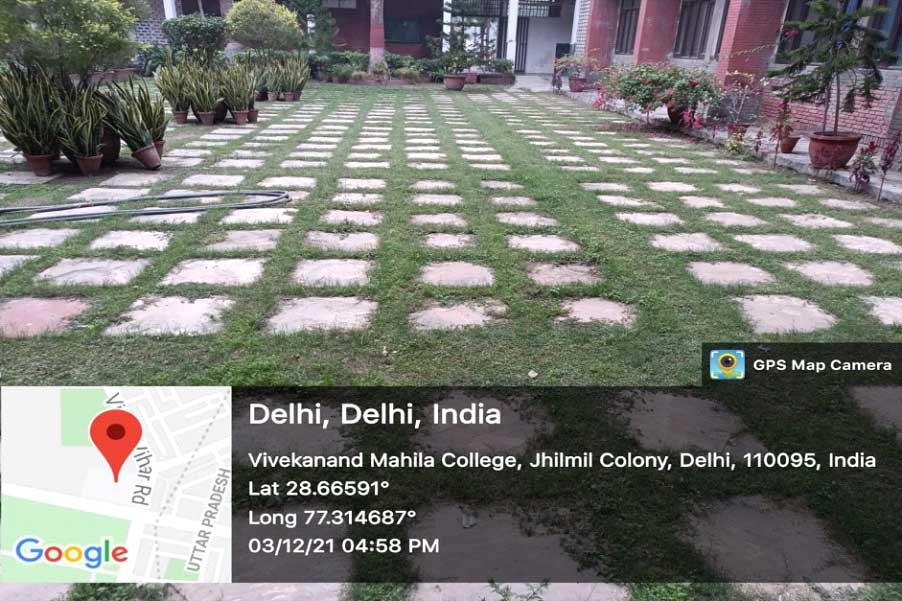
Soundproof silent generators are an efficient tool to keep both noise and vibration at low levels. For the power backup of the institution, the soundproof model is installed near Gate no. 2 of the institution.







